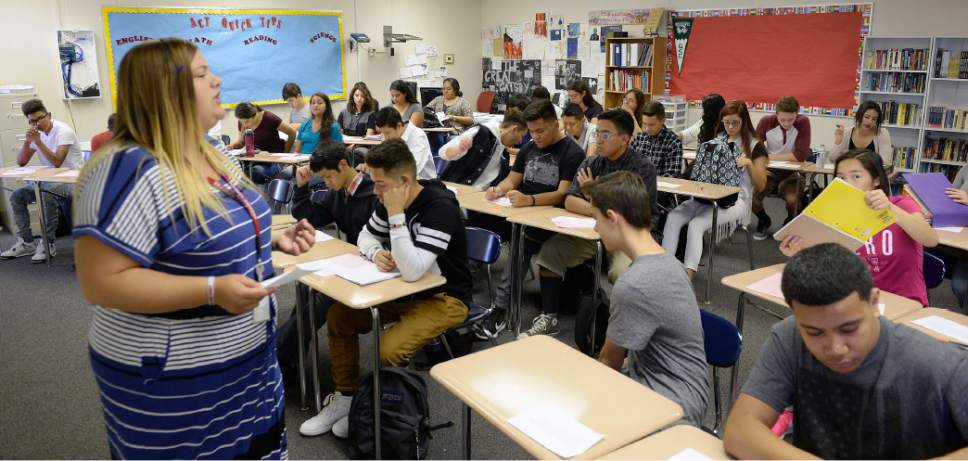This is an archived article that was published on sltrib.com in 2017, and information in the article may be outdated. It is provided only for personal research purposes and may not be reprinted.
With several school districts pushing their starting pay to $40,000 and above, it is getting harder to argue that low wages are driving new Utah teachers out of the profession. But that's not to say we've solved the teacher shortage.
In Salt Lake City School District, a starting teacher will make $44,000. In what has been described as an "arms race," other districts have pushed their starting pay up to $40,000. That's about what it costs for four years of tuition and books at the University of Utah. It's not like those new teachers can pay off their student loans in one year, but it amortizes pretty well.
And let's not forget that they work on 10-month contracts. Not many professionals get that.
Make no mistake. These raises were needed, particularly at the low end of the experience scale. That 42 percent exit rate of Utah teachers after five years is an undeniable market indicator. Still, being a teacher in Utah is not bottom feeding. They generally have good benefits and schedules that fit working parents, not to mention the rewards of lifting up the next generation. And, with the shortage, job security is solid.
So good for the school districts — and their taxpayers — for digging deep for their teachers.
Still, the new contracts differ from the past only in that compensation has gone up. What they don't reflect is a millennial's view of work, and virtually all of those new teachers are millennials. In particular, millennials want the flexibility to fix things. They don't do bureaucracies well, and public education is perhaps our biggest bureaucracy. The teachers who leave the profession often go to industries that understand their mindset.
Public education is embraced in Utah, as it should be. But the school districts have to be lighter on their feet so that they can learn from charters and private innovators instead of compete with them. They have to empower administrators and teachers at the local level to come up with fixes while still producing measurable positive results. That should include more flexibility on teacher compensation and hours.
It's a culture change, and it extends beyond employment contracts. It's about giving educators on the ground the support and resources without constraining them to one size fits all. In some cases, it means the old guard — both in the schools and in the district offices — need to give up some turf.
Raising teacher pay is a good start. Now we should tame the bureaucracy to unleash those teachers' full potential.



